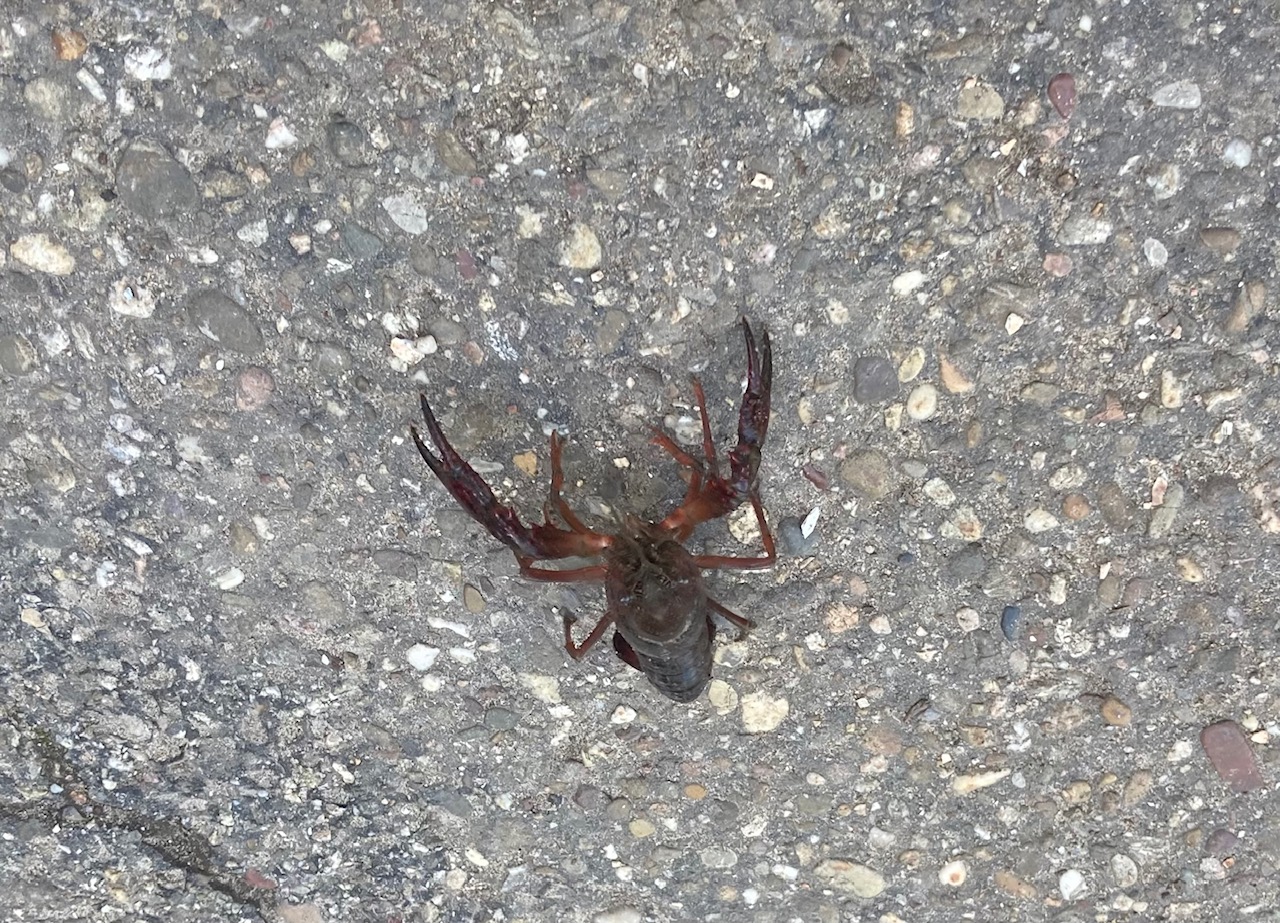Utrecht pits predatory fish, plants and AI against crayfish

Utrecht council and water company Waternet have called in aquatic ecologists to combat the rise of American crayfish in a new experiment using plants, predatory fish and AI.
The crayfish – Procambarus clarkii, or red swamp crayfish – are thought to have travelled from their native United States in the ballast tanks of large freighters and are well adapted to local waterways. They are particularly common in Utrecht, Noord-Holland and Zuid-Holland.
First spotted in Dutch waters in 1985 and largely without any natural enemies, crayfish numbers are now thought to be running into billions. Their presence is said to be a threat to water flora and fauna and they also damage to river banks.
In the Molenpolder near Maarssen the crayfish have demolished practically all plant and animal life, aquatic ecologist Winnie Rip told the Telegraaf. “They are opportunists. If one species runs out the turn to the next. They muddy the water which causes a decline in plants and animals and, ultimately, biodiversity.
By releasing predatory fish like catfish and by “turning on the light” by promoting the growth of plants like bladderwort which clear the water, species may be persuaded to return and the crayfish may feel less at home.
At the moment, the crayfish are being caught in 250 traps which are emptied twice a week and then sold by professional fishermen. Half the crayfish population has been taken care of this way but it’s impossible to do this forever, Rip said. “A single female carries some 200 eggs,” she said.
The plants will be photographed using AI recognition technology, which is part of the experimental approach to the crayfish problem.
The Utrecht experiment will last a year and if successful, the trapping of the crayfish can stop and other crayfish-infested areas can follow suit. “We hope that nature will take over,” Rip said.
Thank you for donating to DutchNews.nl.
We could not provide the Dutch News service, and keep it free of charge, without the generous support of our readers. Your donations allow us to report on issues you tell us matter, and provide you with a summary of the most important Dutch news each day.
Make a donation